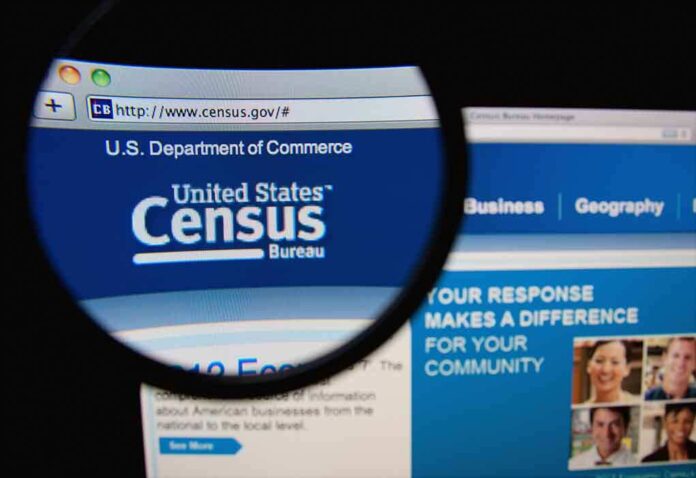
Republican lawmakers are fighting to end the counting of illegal immigrants in congressional redistricting, igniting a high-stakes battle over the future balance of political power in America.
Story Highlights
- Republicans have reintroduced the Equal Representation Act to exclude non-citizens from census counts for seat apportionment and the Electoral College.
- Debate centers on whether counting unauthorized immigrants distorts political representation in favor of Democrat-led states.
- Legal and constitutional challenges are expected, with potential major implications for redistricting and federal funding.
- Expert research suggests the practical impact may be less dramatic than political rhetoric claims, but the controversy is heating up.
Republican Push to Change Census Counting Rules
In June 2025, Republican senators reintroduced the Equal Representation Act, aiming to require a citizenship question on the U.S. Census and exclude non-citizens from population counts used for congressional seat apportionment and Electoral College votes. Supporters argue that current practices unfairly boost political power for states with large unauthorized immigrant populations, particularly California, Texas, and New York. This renewed legislative push comes as redistricting efforts begin nationwide, heightening partisan tensions and focusing national attention on how representation is determined in Congress and the presidency.
GOP leaders, such as Senator Bill Hagerty, have denounced the inclusion of unauthorized immigrants in political representation calculations, calling it unconscionable and a reward for “reckless jurisdictions” supporting open borders and sanctuary policies. Democrats and immigrant advocates counter that the Constitution mandates counting the “whole number of persons” in each state, regardless of citizenship, and warn that excluding non-citizens could disenfranchise entire communities and undermine America’s founding principles. The U.S. Census Bureau remains responsible for implementing any changes, but faces significant legal and logistical hurdles should the new rules be enacted.
Historical and Legal Context
The debate over who should be counted for congressional apportionment is not new. The U.S. Constitution requires a decennial census but does not specify citizenship as a requirement for being counted. Historically, all residents have been included. The Trump administration previously sought to add a citizenship question to the 2020 census, but the Supreme Court blocked the move, citing concerns over accuracy and intent. Now, with President Trump back in office and Republican control of Congress, the legislative route is being pursued to settle the matter. This approach, however, is expected to trigger immediate court challenges, as opponents argue it violates both constitutional language and deeply rooted precedent.
States with large unauthorized immigrant populations have the most at stake, as the outcome could shift congressional seats and Electoral College votes away from them, potentially altering national political dynamics. In the short term, legal uncertainty and partisan conflict are likely to dominate the redistricting process, while long-term effects depend on the outcome of both legislation and litigation. Federal funding for public services, which is also tied to census counts, could be redirected, impacting communities across the country.
Expert Analysis and Political Implications
Peer-reviewed academic research reveals that, while the rhetoric surrounding this debate is heated, the actual impact of excluding unauthorized immigrants from apportionment has historically been modest. Studies indicate that such a change would have shifted no more than two House seats and three Electoral College votes between parties in any year since 1980. Nonetheless, the symbolic and political stakes remain high for both parties. Republican officials argue the measure is necessary to protect citizen voting power and ensure electoral fairness, while Democrats and advocates stress the importance of inclusive representation and adherence to constitutional norms. The national conversation is now sharply focused on the intersection of immigration policy, redistricting, and the future of American democracy.
As legal battles loom and states prepare for potential changes, experts caution that the true effects may not match the alarmist predictions on either side. Yet, the controversy itself is significant, reflecting deeper divides over national identity, citizenship, and the core values that define political representation in the United States.
Sources:
Illegal immigrants potentially counted in US census take center stage in redistricting battle












